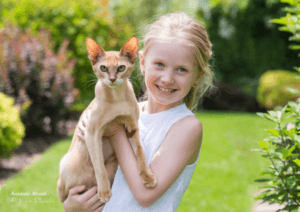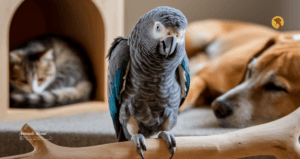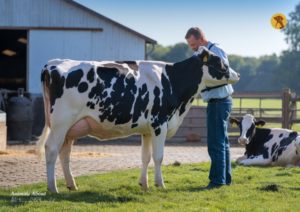Deciding to bring a cat into your life is like opening a new chapter filled with purrs, cuddles, and maybe a few knocked-over vases. But one big question looms for many animal lovers: should you adopt a kitten or an older cat? Both have their own unique magic, and the choice depends on your lifestyle, energy, and what kind of feline friend you’re dreaming of. Whether you’re picturing a playful kitten zooming around or a wise older cat napping on your lap, this guide will walk you through the pros and cons of adopting cats at different ages. Let’s dive into the kitten vs older cat debate to help you find your purr-fect match!
Why Adopt a Cat?
Cats are more than just pets, they’re companions who bring joy, comfort, and personality to your home. Adopting from an animal shelter or rescue shelter gives a cat a second chance at a happy life while filling your days with love. But choosing the right cat isn’t just about falling for those big eyes at the shelter. It’s about understanding what each cat kitten or adult brings to the table and how they fit into your world. So, let’s explore the best age to adopt a cat by breaking down the perks and challenges of each.
Adopting a Kitten: The Tiny Tornado of Joy
Kittens are like little bursts of sunshine wrapped in fur. Their wide-eyed curiosity and boundless energy make them irresistible to many. If you’ve ever watched a kitten chase a laser pointer or tumble over their own paws, you know they’re pure entertainment. But adopting a kitten comes with both delights and demands. Here’s what to expect.
Pros of Adopting a Kitten
- Playful Energy: Kitten energy levels are unmatched. They’ll dart after toys, leap onto furniture, and turn everyday objects into an adventure. If you love action, a kitten will keep you smiling.
- Bonding from the Start: Raising a kitten lets you shape their habits and personality. You’ll form a deep connection as they grow, making them feel like a true family member.
- Longer Lifespan: Cats typically live 12-18 years, and kittens give you the gift of many years together. Starting young means you’ll share countless memories.
- Adaptability: Kittens are flexible and adjust quickly to new homes, routines, and even other pets. They’re like little sponges, soaking up their environment.
- Endless Cuteness: Let’s be honest those tiny paws and big eyes are hard to resist. Kittens bring a special kind of charm that melts hearts.
Cons of Adopting a Kitten
- High Maintenance: Kittens are curious and fearless, which means they can get into trouble by chewing cords, climbing curtains, or knocking over plants. Supervision is key.
- Litter Training: Litter training kittens takes time and patience. Accidents happen as they learn, so be ready for some cleanup.
- Frequent Vet Visits: Kittens need a series of vaccinations, spaying or neutering, and regular checkups in their first year. Vet visits for cats can add up quickly.
- Time Commitment: Their high energy demands lots of playtime and attention. If you’re busy or travel often, a kitten’s needs might feel overwhelming.
- Scratching and Biting: Kittens explore with their mouths and claws, so you’ll need to teach them boundaries to avoid scratches or nips.
Is a Kitten Right for You? Kittens are ideal for active households, families with kids, or anyone with time to invest in play and training. If you’re ready for a whirlwind of fun and want to experience every stage of a cat’s life, a kitten could be your match.
Adopting an Older Cat: The Wise and Loving Companion
Older cats over a year old, often up to senior age are the unsung heroes of shelters. They may not have the flashy appeal of kittens, but their soulful eyes and gentle purrs tell a story of resilience and gratitude. Adopting an adult cat offers a different kind of magic, perfect for those seeking a calmer connection.
Pros of Adopting an Older Cat
- Calm and Collected: Older cat personality traits often lean toward relaxed and affectionate. They’re content to lounge by your side, making them perfect for cozy evenings.
- Low Maintenance: Most adult cats are already litter-trained and don’t need constant babysitting. They’re happy with a sunny spot and some love.
- Known Behavior: Cat behavior by age is clearer with older cats. When you meet them at the shelter, their personality whether shy, chatty, or cuddly is usually what you’ll get at home.
- Instant Gratitude: Older cats seem to know they’ve been given a second chance. Many shower their owners with loyalty and affection, forming deep bonds quickly.
- Less Chaos: Unlike kittens, older cats are less likely to destroy your furniture or wake you up at 3 a.m. zooming around. They’re the epitome of calm cats vs playful kittens.
Cons of Adopting an Older Cat
- Potential Health Issues: Older cats may have age-related conditions like dental problems, arthritis, or kidney issues, leading to more vet visits for cats over time.
- Adjustment Period: Some adult cats, especially those from tough backgrounds, may take weeks to feel safe in a new home. Patience is key.
- Shorter Time Together: Depending on their age, you may have fewer years with an older cat. However, many live well into their teens with proper care.
- Set Habits: Older cats come with established quirks like disliking dogs or preferring solitude that may be harder to change compared to a kitten’s blank slate.
- Less Playful: If you’re hoping for high-energy antics, older cats might disappoint. They’re more about snuggles than somersaults.
Is an Older Cat Right for You? Older cats shine in quieter homes, with seniors, busy professionals, or anyone craving a low-key companion. If you want a cat who’s ready to settle in and share a deep, meaningful bond, an adult cat might be your soulmate.
How to Choose: Factors to Consider
The best age to adopt a cat isn’t one-size-fits-all it’s about what fits your life. Here are some cat adoption tips to guide your new pet decision:
- Lifestyle and Time: Do you have hours to chase a kitten’s energy, or do you want a cat who’s happy with minimal fuss? Kittens thrive with active owners, while older cats suit those with less time.
- Home Environment: A kitten might turn a small apartment into a jungle gym, while older cats adapt well to cozy spaces. Consider your home’s size and setup.
- Family Dynamics: Kids often love a kitten’s playfulness, but older cats may be gentler and more patient with young children or seniors.
- Cat Care Needs: Kittens require startup costs like vaccinations and training supplies, while older cats might have occasional health expenses but fewer initial needs.
- Emotional Readiness: Are you prepared for the rollercoaster of raising a kitten, or do you want the steady companionship of an adult cat? Both are rewarding but demand different energy.
- Long-Term Commitment: Think about the lifespan of cats by age. Kittens offer a long journey (12-18 years), while older cats give you a shorter but equally special time together.
Responsibilities of Cat Ownership
No matter which cat you choose, responsibilities of cat ownership come with the territory. Here’s what you’ll need to provide:
- Daily Care: Feed them quality food, keep their water fresh, and scoop the litter box regularly. Cats are clean creatures and appreciate a tidy space.
- Emotional Connection: Cats thrive on love, whether it’s playtime with a kitten or quiet cuddles with an older cat. Spend time bonding to build trust.
- Financial Planning: Budget for food, litter, toys, and vet visits for cats. Kittens may cost more upfront (vaccines, spay/neuter), while older cats might need care for age-related issues later.
- Safe Environment: Set up a cat-friendly home with scratching posts, cozy beds, and safe spots to hide or perch. Kittens need extra baby-proofing to stay out of mischief.
- Health Monitoring: Watch for changes in behavior, appetite, or litter habits, as these can signal health issues. Regular vet checkups keep your cat thriving.
Pet adoption advice: Visit a rescue shelter and spend time with cats of all ages. Many shelters offer meet-and-greet rooms where you can see how a cat’s personality meshes with yours. Don’t rush, let the connection happen naturally.
Kitten vs Older Cat: A Side-by-Side Look
| Factor | Kitten | Older Cat |
| Energy Level | High, playful | Low, calm |
| Training Needs | Litter training, socialization | Usually trained, set habits |
| Health Costs | Vaccinations, spay/neuter | Possible age-related care |
| Lifespan | Longer (12-18 years) | Shorter, but many live long |
| Best For | Active homes, families | Quiet homes, busy folks |
| Playtime | Lots of interactive toys | Occasional play, more cuddles |
| Adaptability | Easily adjusts to new settings | May need time to settle in |
Myths About Kittens and Older Cats
Let’s clear up some misconceptions that might cloud your decision:
- Myth: Kittens are always healthier than older cats.
Truth: While kittens may start with fewer issues, proper care keeps older cats thriving for years. Shelters often screen cats for health problems before adoption. - Myth: Older cats can’t bond as well as kittens.
Truth: Adult cats form deep, loyal bonds, often showing extra gratitude for their new home. - Myth: Kittens are easier to train.
Truth: Kittens need more training (litter, scratching), while older cats usually come with good habits already in place. - Myth: Older cats are boring.
Truth: Many adult cats are still playful, just in a calmer way like batting a toy or chasing a feather wand.
Why Adopt from a Shelter?
Adopting from an animal shelter is a win-win. Shelters are full of cats, kittens, adults, and seniors waiting for a loving home. Here’s why it’s a great choice:
- Save a Life: Every adoption frees up space for another cat in need.
- Health Checks: Most shelter cats are vaccinated, spayed/neutered, and screened for health issues, saving you initial costs.
- Support a Cause: Your adoption fee helps shelters care for more animals.
- Variety: Shelters have cats of all ages, colors, and personalities, so you’re sure to find your match.
Final Thoughts: Your Feline Friend Is Waiting
Deciding to adopt a kitten or older cat is a journey of the heart. Kittens bring a whirlwind of fun, curiosity, and the chance to grow together through every life stage. Older cats offer soulful companionship, gratitude, and a steady presence that’s perfect for quieter moments. Both deserve a loving home, and adopting from a rescue shelter makes you a hero in their story.
Take your time to reflect on your lifestyle and what you’re ready to give. Visit a shelter, play with a few cats, and see who tugs at your heartstrings. Whether it’s a bouncy kitten or a gentle senior, the right cat will feel like they’ve always belonged with you. So, what’s calling you playful chaos or cozy cuddles? Share your thoughts, and let’s talk about your new pet decision!







